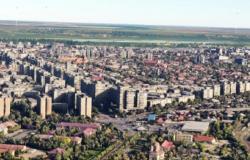No black swan seems possible, a character to come out of civil society and reset the representation contract. Between Marcel Ciolacu and Mircea Geoană, the political offer for the presidency seems to mark a status quo initiated by Klaus Iohannis, in which political competition is closed outside the main circle of party power.
No political party has been able to propose a president profile that meets the expectations of the electorate, for whom the presidential elections remain the most important.
There are several working hypotheses for this decoupling between political supply and societal demand.
- Democracy has become expensive and access to political competition is clan-based, so that the circulation of elites in society no longer includes politics. On the one hand, we are dealing with the process of cartelization of the parties, which makes access from outside the political families/tribes difficult. On the other hand, entering the political competition has become too expensive and the party’s investment in human resources is no longer an option. This can be seen not only in the mammoth parties, PSD and PNL, where the control of party resources is at stake, but also in the new parties, where the rise of young people is difficult, see the new resignations from REPER.
- The Romanian school has no tradition in the training of politicians, as, for example, the USA, Great Britain and France have, and where, in general, those who reach the top of politics can fit into a leader’s profile.
- Mediocrity of political leaders is not an autochthonous process, Romania also joins one Zeitgeist, see the episode, with its possible rerun, Donald Trump in the USA. However, the difference is given by the quasi-generalization of mediocrity in Bucharest and the hijacking of institutions, in such a way that black swans are impossible.
- Relativization, with the maximum peak reached in Timișoara, where the PNL candidate for the mayor’s office has the support of the PSD or, as a journalist friend remarked, “point 8 is turning in its grave”. In fact, the twist began even with the sabotage of lustration and the manipulative equating of individual guilt with collective responsibility. This is how the Romanians ended up being all casters, to one degree or another, so that the culprits could no longer be distinguished by anything. Politically, however, the trivialization and quagmire in everything was validated by the overturning of the vote made by President Klaus Iohannis, who, after presenting his only electoral offer “without PSD”, brought PSD to power and practically started a process of dissolution of liberalism within the alliance with PSD. It was the culminating moment of the compromise of the representation contract and the return to the paradigm of delegative democracy, in which the citizen exists politically only at the time of the election, between elections he has no lever of real control of political power.
- The transformation of the presidential institution into a sinecure and its obfuscation. It is one of the worst consequences of Klaus Iohannis’ mandates, in the long term, and the window in which the power and representation of the presidency can be restored is not at all large. If the presidential election, arbitrarily moved to the autumn, will confirm the presidency’s entry into irrelevance, then the presidential institution will have the same fate as the ICR and the CNA, two institutions diverted from their role. By the way, if I don’t know anything about Cezar Preda’s fate, it’s because he received shelter at ICR Paris.
However, there is another element, namely the opportunism of the mainstream political parties, for which it is rather convenient that the expectation of the electorate goes towards the presidential institution. In a functioning democracy, parties are fundamental institutions, but that also means that they answer to the electoral pool they have. However, in Romania, with the fragile exception of the UDMR, the other parties have a volatile electorate, which, by the way, makes it so possible to vote resentfully, to blame, and to move from one party to another, without reporting any ideological contradictions






